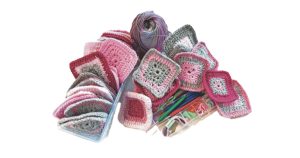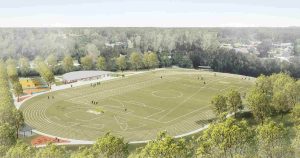By Barry Lees - Still Creek Landcare
We live in a fantastic area and at this time of the year, it is just glorious. After good rains, you can almost hear the plants growing. The pride that many people have in their gardens is obvious – new buds, brilliant flowers, green lawns, crisp vegies…….
Most gardens are based on exotic plants, i.e. they are not local natives. That being so, they usually need regular fertilising and watering to look their best. Gardening magazines and TV programmes press this point repeatedly.
While admiring all that is good, we need to understand that some of this fertiliser is washed off during rain or heavy watering, and ends up in local creeks and rivers.
Much of the bush in our area is Hawkesbury Sandstone country. This has very poor sandy soil and over millions of years, plants have adapted to grow and flourish in these conditions. You would think that adding nutrients (from fertiliser runoff) would help the plants, but it does the opposite. Many bush plants find a higher nutrient load toxic. Weeds, however, love the nutrients and they thrive, outcompeting the natives. Walk down most of the creeks in the area and you will find weeds, weeds and more weeds.
So it is important to apply just enough fertiliser to gardens and lawns, and no more. Be stingy with fertiliser – the bush will love you!
There are other ways that weeds get into the bush. Seeds can be blown by the wind. Birds can eat fruit and berries from a garden and poo the seeds out in the bush. Seeds can become attached to clothing or the fur of dogs, possums or wallabies and be dropped into the bush. I go bushwalking and I have personally pulled out privet, passionfruit, cotoneaster, agapanthus, pampass grass, honeysuckle and many others, kilometres from the nearest civilisation.
We can help the bush by removing spent flowers before they go to seed, and not growing plants that are known to cause problems (e.g. privet, cotoneaster). There is a booklet available from nurseries and Council called “Grow Me Instead” that names problem plants and recommends alternatives.
A third way to be bush-friendly is to plant local natives. They need little or no fertiliser or added water and provide food and shelter for small birds and animals. And yes, the bush will love you!
If you would like help or further information, contact Nick on 9653 2056, via email [email protected] or visit Still Creek Landcare at http://www.stillcreeklandcare.com.au or find us on Facebook










